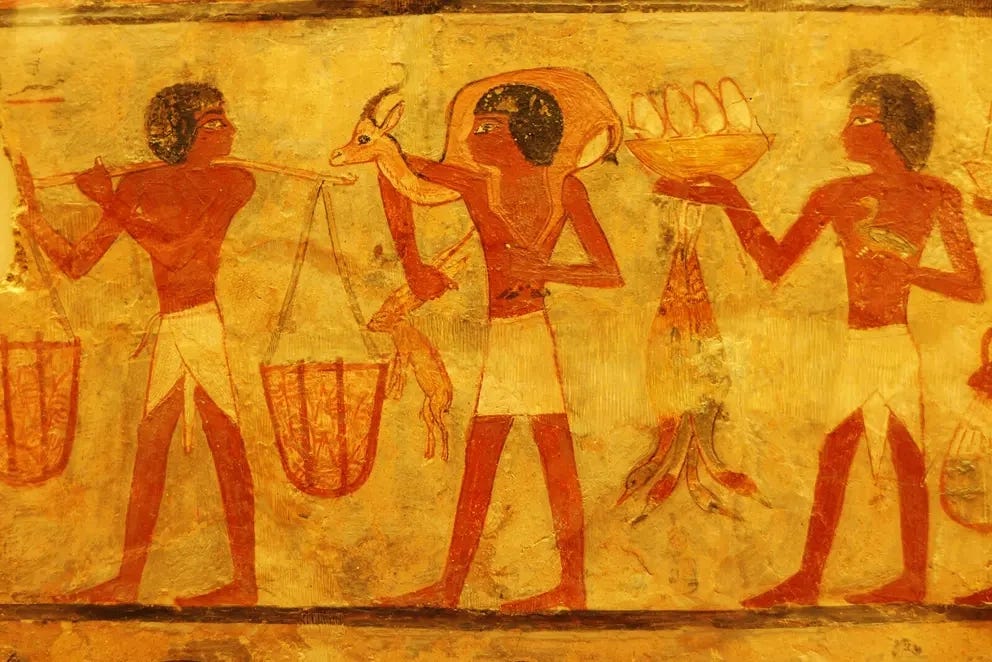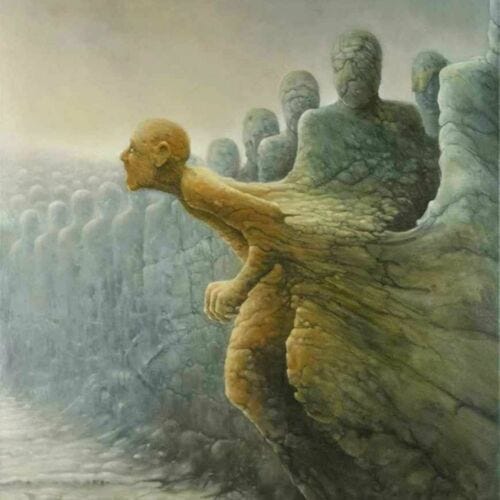By the shores of Lake Zurich in Switzerland, during his seminar on Nietzsche’s Zarathustra, Carl Jung left us with the following reflections on how to destroy a herd mind. To begin, he quoted Nietzsche, who said:
“The pleasure of being a herd is older than the pleasure of being an I: and as long as the good conscience is called herd, only the bad conscience says: I.
Truly, the cunning I, lacking in love, which seeks its own gain in the gain of many: that is not the origin of the herd, but its ruin.”¹
Carl Jung explains this passage as follows:
“When the living unit, the individual, becomes conscious of his separate condition, the herd is destroyed, it ceases to function.
Therefore, as individuals become more and more conscious, the herd recedes more and more and is replaced by what we call ‘society’: namely, an organism founded on conventions between conscious individuals.”²
Before going further, it’s important to highlight why the herd mind exists. This is not just a matter of philosophy or psychoanalysis: as a social species, human beings have historically survived thanks to belonging to groups.
From mammoth hunts in prehistory to modern corporate offices, being part of the “herd” has meant safety, protection, and belonging.
But this creates a deep inner conflict. Our psyche not only demands that we be part of the group in order to survive—it also calls us to grow as individuals.
This is a profound dilemma—and from this perspective, if we were eagles, perhaps it would all be much easier.
How do we resolve this great conflict? Jung invites us to become aware of our “separate condition”—that is, to understand and assimilate the fact that we are unique individuals so that the herd dissolves within us.
It’s not about isolating ourselves or becoming radical individualists, but about realizing that we hold values and needs of our own, beyond society’s approval.
This opens the door to the creation of a true society.
“Society,” in the Jungian sense, is not the same as the herd: it is a higher, voluntary form of coexistence between differentiated individuals—an agreement among conscious beings.
Why does the modern world have more herd and less society?

The following words from Jung help us understand why, in today’s world—despite the apparent progress of civilization, technology, and individualism—the herd mentality still thrives:
“Society is not destroyed by the consciousness of individuals, or by individuation, but only by unconscious individuals.
However, the herd is destroyed by conscious individuals.
Now then, as soon as there is a conscious individual, there is also a system of values, because values mean discernment.”³
The real problem is not rebellion or diversity, but collective unconsciousness—even among those who think they are awake.
How many respectable people and brilliant minds have we seen supporting extreme ideologies?
How many intellectuals from the most important fields are truly aware of what lies behind their thoughts and actions?
Today’s herd carries neither staff nor visible shepherd: it organizes itself into echo chambers, viral causes, political or spiritual cults.
In the process of awakening, the herd mind is dismantled—because by contemplating the roots of what we are, think, and do, we begin to see our individuality, the inner treasure that dwells within us.
Only then can we begin to form a truly independent judgment.
The Projection of the Herd Mind
However, in this task, we must be careful not to fall into Nietzsche’s mistake:
Despising the herd mind and the inferior individual instead of attentively and honestly observing in which parts of ourselves that same mentality and inferiority still live.
This isn’t only about what we think, but about what we actually do. And here, it’s not a matter of whether we believe something is right or wrong, but of how faithful we are to ourselves—how courageous we are in following our inner truth.
We must be honest and recognize that the world needs fewer people giving opinions, and more conscious individuals—those who have confronted their shadow, embraced their otherness, and endured their solitude.
Only then can we become seeds of a more authentic society, and not of a herd disguised as diversity.
Another equally important question arises:
How can we survive within a herd that seeks to annihilate individuality?
Because the herd requires everyone to need each other—to depend on one another to sustain the shared consensus.
We must find a way, because while going against the herd is dangerous, sacrificing our individuality to it is fatal.
Fortunately, Jung offers us the following words:
“The fact that we love ourselves should remain hidden, it should not be mentioned. It should appear as if we did not love ourselves; otherwise, the community feels threatened in its existence.
Even more so, when we love ourselves, we have stolen—because we have allowed ourselves to have something of our own, our own ideas about things instead of the ideas of others,
which, from the herd’s point of view, is exactly what must not happen.”⁴
Remember: I’ve committed myself to deeply studying all of Jung’s work and also to freely sharing what I learn, so my content will always be free. But if you’d like to support my project, I’d gladly accept a coffee:
I also recommend that you read my following publications:
Nietzsche and Jung: How to Fill Your Life with Meaning and Value
Neither Israel nor Iran: All States Are Monsters According to Jung
Sources:
1. Nietzsche, Thus Spoke Zarathustra, Chapter 15: Of the Thousand Goals and the One Goal.
2, 3, 4. Notes of the Seminar Given in 1934–1939, Autumn Term 1935, Session V. Carl Jung's commentary on Nietzsche's Thus Spoke Zarathustra.






I am an avid devotee of Jung...one of my best experiences was being clinically supervised by a Jungian analyst; he took classic behaviorism and turned it on its head! I've been addicted ever since. Anyway, I particularly loved this: "We must be honest and recognize that the world needs fewer people giving opinions, and more conscious individuals—those who have confronted their shadow, embraced their otherness, and endured their solitude." That is especially challenging now, when "shadow work" is the newest and hottest trend in personal development. Those who've done the work don't need to crow about it...and sometimes we miss the bliss of solitude.
When we can humbly engage in our shadow work. Discover our unique values and thus individuate, we are better able to engage in the society and work for the good of all.